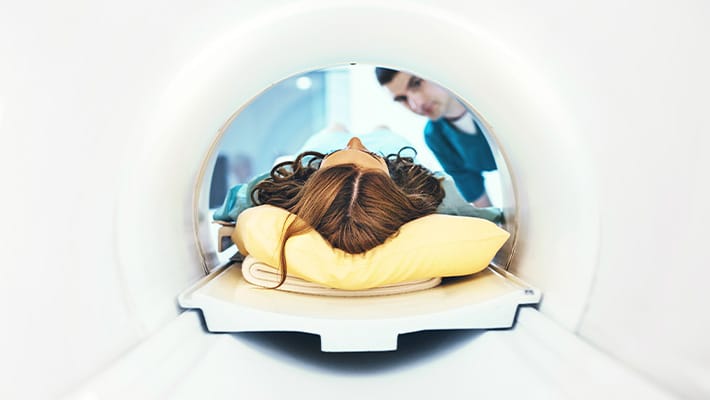Brain Injuries
Indianapolis Brain Injury Lawyer
Each year in the United States, over 1 million people sustain some form of traumatic brain injury (TBI). Traumatic brain injuries are typically caused by a blow or jolt to the head, which can permanently disrupt brain functions. The severity of a TBI can range from a mild concussion to a coma to death.
TBI symptoms are not always immediately noticeable or present in patients. For example, a brain injury can take the form of a mild concussion, which can result in long-lasting effects if left untreated. Another type of brain injury is an acquired brain injury (ABI), which is caused by extreme pressure on the brain. Tumors and other neurological illnesses can result from this type of injury.
Brain Injuries can be defined by injuries to the brain that are not congenital, degenerative, or hereditary. The injury may be a result of trauma, caused intentionally, or by act of negligence.
Types of Brain Injuries
While different injuries may have similar symptoms, there are several types of brain injuries. Brain injuries can include traumatic brain injuries (TBI), mild head injury/concussion, stroke, brain aneurysm, or brain tumors.
Brain injuries can also be categorized by primary brain injury or secondary brain injury. Primary brain injury refers to the initial impact creating the injury, whereas secondary brain injury refers to the symptoms or changes following the primary injury.
Causes of Brain Injuries
There are many potential causes of traumatic brain injuries. Causes of TBIs can include but are not limited to the following:
- Vehicle accidents and crashes
- Firearm injuries
- Slips and falls
- Contact sports
- Birth injuries
- Surgical errors
- Diagnosis errors
- Spinal cord injuries
If you are unsure whether or not your injury falls under a brain injury lawsuit, auto accident lawsuit, birth injury lawsuit, or other, contact the lawyers at WKW today.
Brain Injury Symptoms (TBI and ABI)
Symptoms of brain injuries can vary depending on the patient and the injury sustained . Symptoms of brain injuries can be quickly noticeable or can take time to develop. Traumatic brain injury symptoms can include headaches, blurry vision, irritability, nausea, vomiting, sensitivity to noise/light, problems balancing. Acquired brain injury symptoms can include weakness, tiredness, poor balance, changes in sleep patterns, seizures, or changes in vision.
Consequences of Brain Injuries
Brain injuries can cause short-term and long-term effects, which can severely impact a person’s quality of life. Ranging between cognitive, psychological/behavioral, and physical, the repercussions of brain injuries can be devastating. Consequences of brain injuries can include the following:
Cognitive
- Short- or long-term memory loss
- Disorientation
- Difficulty concentrating
- Trouble communicating
Psychological/Behavioral
- Anxiety
- Depression
- Agitation or mood swings
- Impulsivity
Physical
- Seizures
- Headaches
- Loss of speech or speech impairment
- Partial or complete paralysis
- Changes or loss of vision, hearing, smell or taste
What to Do if You Have Experienced a Brain Injury
Brain injuries are very unpredictable but extremely impactful. If you have experienced a brain injury, you are urged to contact the brain injury lawyers at Wilson Kehoe Winingham. The legal team at WKW will perform a thorough review of all documentation related to the accident. For more information on required supporting documentation, contact us today.
Types of Compensation for Brain Injury Victims
For victims of personal injury cases including brain injury victims, compensation can be awarded in different forms. Types of compensation include:
- Medical bills
- Loss of wages
- Physical pain and suffering
- Emotional distress
- Wrongful death
- Punitive damages
The type(s) of damages or compensation awarded to a victim of brain injury are different from case to case. Economic damages refer to compensation for medical bills or loss of income. If projected loss of income can be proven, you may be awarded for future loss of wages. Non-economic damages can be defined as any emotional distress, pain, or suffering by the victim and/or loss of the victim. In addition, punitive damages may be compensated to the victim as punishment to the defendant or person responsible for the injury.
Statute of Limitations
The statute of limitations, or the number of years you have to file a particular type of lawsuit, is two years for brain injury claims.
Filing a Brain Injury Lawsuit in Indiana
Injuries suffered as a result of brain trauma can be severe and life altering. A seriously injured person needs the help of a medical and legal team of a personal injury lawyer. Wilson Kehoe Winingham has represented multiple TBI victims and their family members in Indiana and throughout the United States.
Our firm has legal nurse consultants on staff as part of our team with the knowledge and experience to evaluate issues related to brain and other neurological injuries. In addition, our lawyers work closely with economists, vocational specialists, and life care plan specialists to put a dollar figure to the lifelong needs that a client will ensue as a result of a brain injury. We document all facts pertaining to the accident, the injury, and the impact on a victim’s life as well as future needs for rehabilitation or additional accommodations.
Contact a Brain Injury Attorney Today
If you or a loved one have suffered from a brain injury, you are urged to contact the Indianapolis Brain Injury Attorneys of Wilson Kehoe Winingham. The lawyers at WKW can help you get the compensation you deserve. Call 317.920.6400 or fill out an online contact form for a free, no-obligation case evaluation.
Table of Contents
Brain Injury Videos
Contact Us
Let WKW put our experience to work for you. Contact us for your free case evaluation.
Or, call us today at (317) 920-6400









